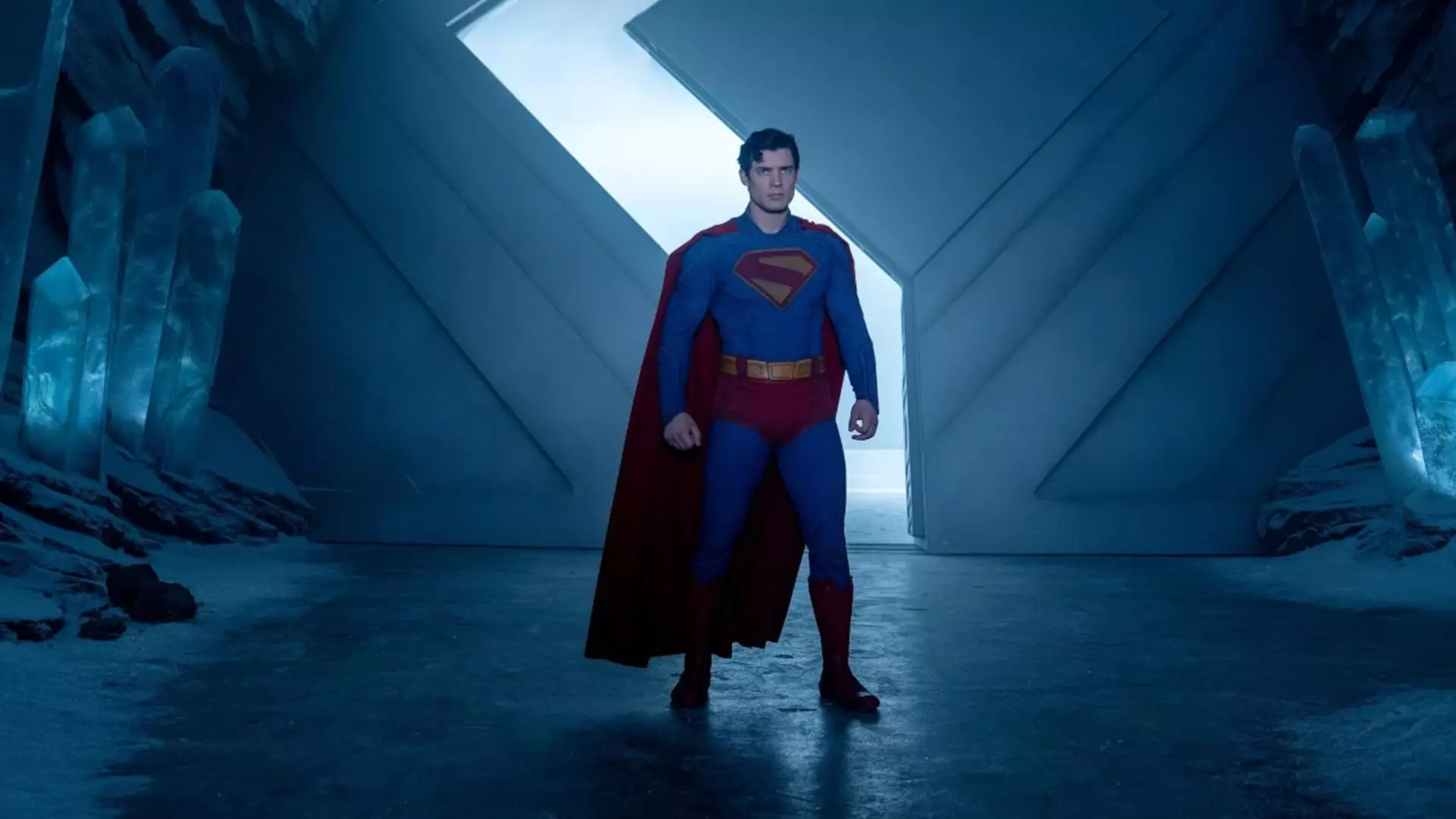The debut of Warner Bros.’ latest Superman film under the creative stewardship of James Gunn and Peter Safran marks more than just a box office event—it signifies a pivotal shift in how the iconic hero is positioned in modern cinema. The impressive $22.5 million in preview screenings signals a robust response from audiences, yet it also raises questions about whether this momentum can sustain through the summer months. Historically, superhero movies tend to open strong but face the challenge of maintaining that enthusiasm, especially with a franchise as storied and scrutinized as Superman. This current performance, while commendable, invites skepticism about whether Warner Bros. can translate initial interest into long-term success or if they are merely riding a wave of nostalgia that might soon crest.
The comparison to previous DC and Marvel blockbusters illustrates that expectations are high. Blockbusters like “The Dark Knight Rises” and “Batman v. Superman” managed enormous openings, but as recent history demonstrates, sustaining the franchise’s relevance and profitability requires more than just a strong debut. If the new “Superman” film hopes to carve out its own legacy, it will need to go beyond mere spectacle and deliver a resonant story that captures the moral complexity and aspirational spirit that have historically defined the character.
Market Realities and Audience Expectations
The projected three-day box office of $130-$140 million is promising, especially when compared with pilots like “The Batman.” However, the real challenge lies in maintaining audience interest beyond the initial weekend. The superhero genre has become oversaturated, with studios often prioritizing flashy visuals and cameo-driven narratives over authentic storytelling. The risk here is that fans may be content with a high-energy spectacle, but whether the film can elevate Superman’s mythos with depth and subtlety remains a critical question.
From a market perspective, the film’s success on premium screens bodes favorably for Warner Bros., as it suggests a willingness among consumers to pay a premium for a high-quality superhero experience. However, there is a danger of over-reliance on spectacle, which could ultimately diminish Superman’s moral and philosophical significance. If the film becomes yet another visual feast without substantive storytelling, the franchise might find itself caught in a cycle of diminishing returns—originally promising but ultimately hollow.
The Geek Culture and Corporate Strategy Conundrum
Warner Bros.’ strategic overhaul under Gunn and Safran indicates a desire to reshape DC’s identity with a more hopeful, optimistic outlook. This approach stands in stark contrast to the darker, more cynical tones that have dominated recent superhero narratives. It’s a gamble rooted in wanting to recapture the purity of the original Superman ethos—hope, justice, integrity—serving as a counterbalance to the cultural fatigue over grim, gritty superhumans.
Yet, aligning creative vision with commercial viability is a tightrope walk. The industry’s obsession with franchise longevity often dilutes innovation, trapping heroes in recycled storylines that fail to surprise. Gunn and Safran’s ambitious 10-year plan offers hope that they’ll bring genuine freshness and a coherent universe. But reality dictates that even the most promising initiatives often stumble, especially when balancing fan expectations with broader audience appeal.
The critics’ warm reception—an 83% “Fresh” rating—suggests that this reboot is on the right track critically. Still, critic approval does not always equate to box office dominance or cultural impact. The true test will be whether this iteration of Superman can transcend its origins and forge a meaningful, enduring connection in an era increasingly dominated by streaming and fragmented viewing habits.
While initial numbers are encouraging and represent a positive sign that the reboot is resonating, the true measure of success remains elusive. Warner Bros. has placed a significant bet on the revitalization of Superman, hoping that the hero’s enduring symbolism can be reinvigorated amidst a turbulent cinematic landscape. For center-right liberals and pragmatic conservatives alike, this reboot exemplifies a broader cultural desire for stories that inspire confidence in systemic virtues—hope, perseverance, and moral clarity—without sacrificing sophistication.
If Gunn and Safran can navigate the treacherous waters of sequel fatigue, audience skepticism, and franchise overextension, they might just usher in a renewed era of DC storytelling that balances spectacle with substance. But the risk remains that, without careful storytelling rooted in character and moral complexity, this “super” reboot may ultimately fall prey to the pitfalls that have hampered so many superhero enterprises before it. The stakes are high, but for those who believe in the enduring power of hope over cynicism, this could be a defining moment—not just for Superman, but for the future of superhero cinema itself.

